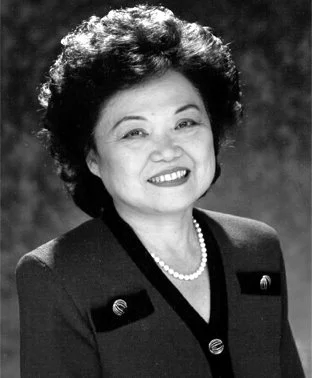Female athletes from James Campbell High School score class certification after Ninth Circuit Appeal
Elizabeth Kristen, Director Gender Equity & LGBTQ Rights Program, Legal Aid at Work & Emma Steiner, Law Clerk, Legal Aid at Work
In this Title IX 50th anniversary year, present and future female athletes of James Campbell High School (“Campbell”) in Hawaii won class certification to pursue their Title IX claims against the Hawaii State Department of Education (“DOE”) and the Oahu Interscholastic Association (“OIA”).
Hawaiʻi has a special connection with Title IX—now named after its co-author, former Congresswoman Patsy T. Mink. Mink worked tirelessly for education reform during her political career and overcame gender and racial discrimination to become the first woman from Hawaiʻi and first woman of color elected to Congress. The class is represented by Legal Aid at Work, ACLU of Hawaiʻi, and Simpson Thacher & Bartlett LLP.
The class has claimed Defendants violated Title IX by failing to provide equal athletic participation opportunities and equal athletic treatment and benefits to girls. For example, male athletes were entitled to exclusive use of a locker room near the athletic fields, equipped with showers and storage, while the girls were forced to change under the bleachers, in their cars or at a local fast food restaurant.
When several students and parents from the girl’s water polo team flagged concerns of gender discrimination, the DOE retaliated against the class. The administration threatened to cancel the water polo season, increased scrutiny of the team, and mysteriously lost required team paperwork. This retaliatory conduct and the stark inequality between male and female athletes at Campbell are out of bounds under Title IX.
The plaintiffs brought the case on behalf of over 300 current students, as well as all future potential female athletes who were on the sidelines at Campbell High School. In an upset, the District Court denied class certification in 2019 finding that the class failed to meet numerosity standards and, for the class-wide retaliation claims, that plaintiffs failed to show typicality and commonality.
Patsy T. Mink (December 6, 1927 - September 28, 2002) worked tirelessly for education reform during her political career and overcame gender and racial discrimination to become the first woman from Hawaiʻi and first woman of color elected to Congress.
The plaintiffs pursued a successful interlocutory appeal. The Ninth Circuit reversed and remanded in an opinion that includes several important holdings with implications for all class claims and for class-wide retaliation claims in particular.
First, with respect to numerosity, the Ninth Circuit affirmed several aspects of its decision in Jordan v. County of Los Angeles, 669 F.2d 1311 (9th Cir. 1982). The decision reiterated that the large size of the class indicates impracticability of joinder and found that the class of over 300 female students here was sufficiently large to meet the requirements of Rule 23(a). A.B. v. Hawaii State Dep’t of Educ., 30 F.4th 828, 836-7.
Second, the Ninth Circuit emphasized that joinder need not be impossible, only impracticable, in other words, difficult or inconvenient. Id. at 837. In addition to finding numerosity based on the 300+ current class members, the court also found that the inclusion of future class members further supported numerosity. Id. at 838-39. The court noted that each year, as much as 25% of the student body could turn over, requiring continual joinder of new claimants. Id. at 838. The existence of future class members weighed heavily in favor of class certification. Id.
James Campbell High School (Google Street View)
Third, the Ninth Circuit recognized the systemic nature of Title IX athletic claims. Id. at 834. Though specific discriminatory actions might not affect every class member, discriminatory actions would have broad consequences, including unequal access, treatment, and benefits, which would create a common injury among the Plaintiffs. Id.
Finally, expanding on the idea of the systemic nature of the claims, the court recognized the class-wide impact of retaliation. Id. at 840. Even though only the water polo team had experienced specific incidents of retaliation, those incidents created a chilling effect, discouraging all girls from speaking up about discrimination. Id. The court found both commonality and typicality in this claim. Id. This decision builds on the Ninth Circuit’s class-wide retaliation standards explained in Ollier v. Sweetwater Union High Sch. Dist., 768 F.3d 843, 851 (9th Cir. 2014). Although class-wide retaliation claims are not common, they are viable and should be carefully considered in civil right cases.
After the Ninth Circuit remanded the case for a determination on whether the class also met the requirements of Rule 23(b), on July 1, 2022, the District Court considered 23(b) and finally certified the class. Thus, the long delay on the path to class certification for the girls at Campbell high school has ended. The case will now proceed to discovery with a trial date in October 2023.
While the named class representatives graduated during the litigation, Plaintiff T.T. understood the long game. She said, “I am part of this lawsuit because I want to change things for girls. I don’t want other girls to have to deal with everything we as female athletes have endured. … I want the generations that come after me to get what I didn’t receive and experience good memories of Campbell athletics.” For more information about the case, including an interview with another class representative, listen to this conversation about Title IX’s anniversary.
Pillsbury Winthrop Shaw Pittman LLP represented the following organizations who submitted an amicus brief in support of Plaintiffs’ appeal: American Association of University Women, Atlanta Women for Equality, the California Women's Law Center, Equal Rights Advocates, the National Women's Law Center, the Southwest Women's Law Center, the Women's Law Project, and the Women's Sports Foundation. The Impact Fund also provided technical assistance to Plaintiffs.



